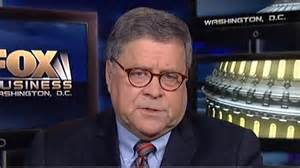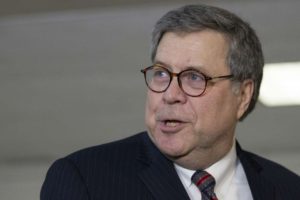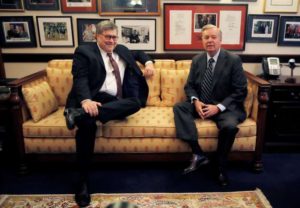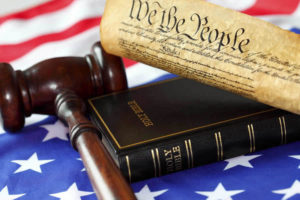William Pelham Barr surely knows that he is stepping onto political terrain that is a universe apart from where he once ventured.
President George H.W. Bush nominated him to be attorney general in 1991 and he sailed through confirmation, being approved unanimously by the Senate Judiciary Committee and by the full Senate.
Another president, named Donald Trump, has selected him for the top justice job once again. Will he sail effortlessly to confirmation? Nope. It won’t happen.
This is a different time. We have a different type of man in the Oval Office. The climate in Washington is far more toxic than it was when the AG-designate strode upon the national scene back in the old days.
The government is partially shut down. Questions are swirling all around the president. The previous attorney general, Jeff Sessions, got fired because he acted ethically by recusing himself from an investigation into a circumstance in which he was a principal player; he then incurred the president’s wrath for standing up for the rule of law and for DOJ ethics policies.
William Barr is facing tough questioning from Senate committee Democrats. He is handling himself well and I happen to believe he should be confirmed as attorney general, largely because he is now on record as committing himself to ensuring that a key investigation into Trump’s campaign is completed fully and without political pressure or interference.
Yes, there is plenty to concern Americans. I would prefer that Barr commit to letting the public view special counsel Robert Mueller’s report when he issues it. However, he has stated that Mueller — whom he has known for 30 years — is not engaging in a “witch hunt” and has expressed confidence in the integrity of his probe.
And . . . he has told senators that he won’t allow the president to bully him the way he did Jeff Sessions.
This confirmation process is going to be a lot tougher for William Barr than it was the first time. It’s merely a symptom of the era into which we entered upon the election of Donald Trump as president of the United States.



